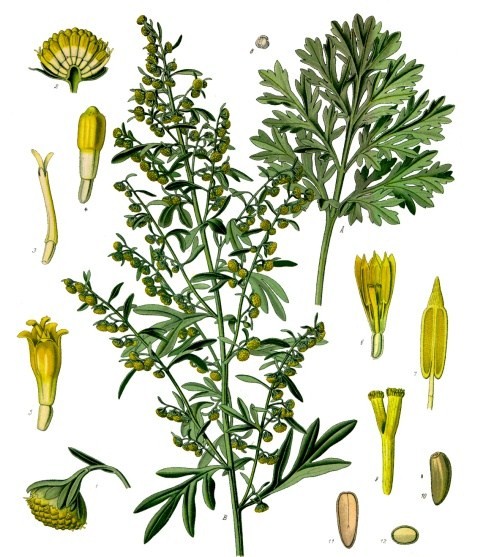Wormwood (Artemisia absinthium L)
Parts used:
dried leaves and flowering tops
Constituents: sesquiterpene lactones, volatile oil containing thujone, flavonal glycosides, phenolic acids, tannins
Pharmacopoeia Standard: the dried herb should contain no less than 2ml/kg of essential oil.
Actions: bitter digestive tonic, uterine stimulant, choleretic, anthelmintic, antiseptic
Indications: nematode infestation, anorexia, atonic dyspepsia
Applications: Wormwood stimulates digestive secretions, improving digestion and absorption. It helps ease flatulence and bloating and strengthens the digestive system after illness. The sesquiterpenes are strongly insecticidal and, as its name suggests, Wormwood is an effective treatment for intestinal worms.
Safety: Wormwood should be taken for no longer than 4 weeks. Contraindicated in pregnancy and breastfeeding and in gastric or duodenal ulceration. Excessive doses cause vomiting and diarrhoea.
Dosage: up to 500mg three times a day









